How Much Cash Should I Have in My Wallet?
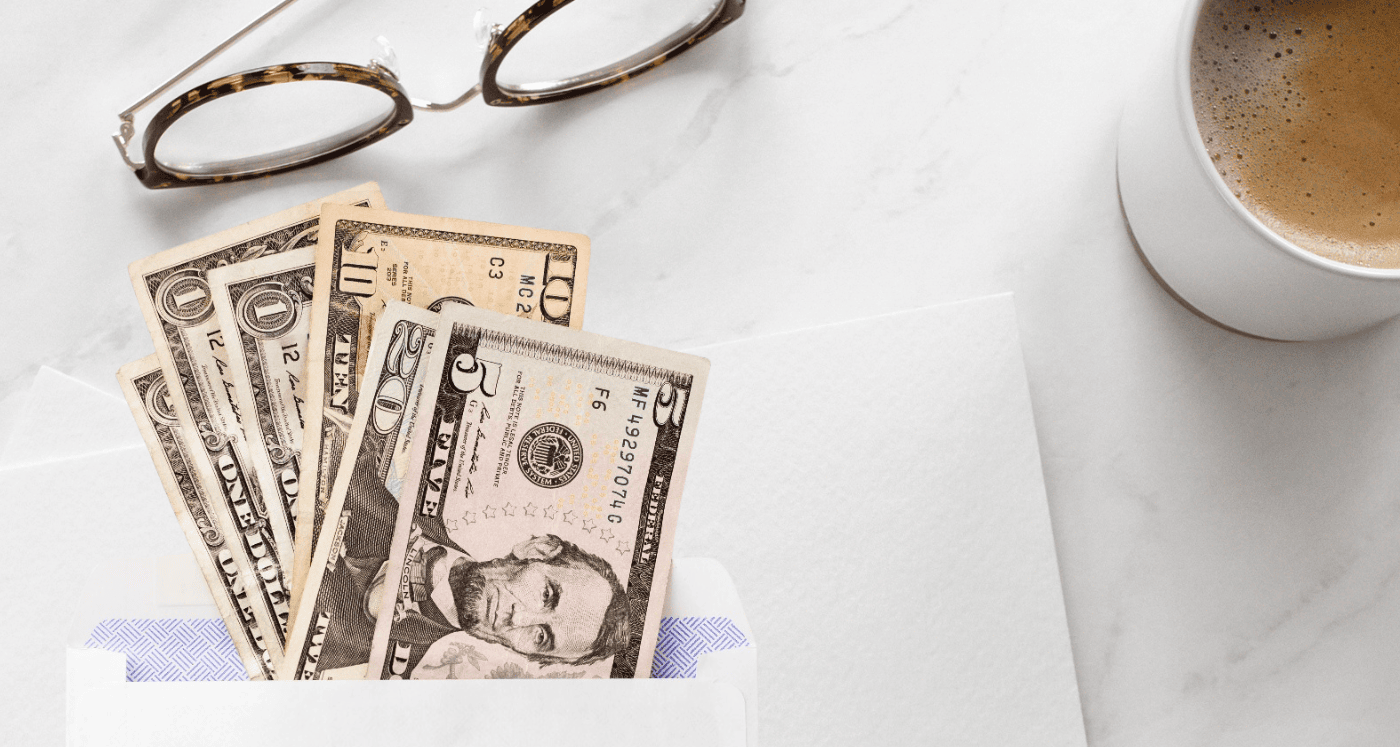
Cash is becoming less common than it used to be, but there are still a lot of situations where you might need to bring some money with you. But how do you know how much is enough, and what situations would you need cash for?
Find out the answer: “how much cash should I have in my wallet?”
As an affiliate partner of various brands and sponsored content, HerPaperRoute may earn commission on qualifying purchases. Disclaimer
While there is no exact amount, a good number to start with is to carry somewhere between $100-$300 depending on circumstances. You can modify this for your situation, but it’s an excellent place to start.
How much cash does the average person have in their wallet?
Sometimes it helps to know what others do. It helps when you’re deciding about the amounts and if you should even carry cash at all.
Some people don’t like to use cash, and in fact, fewer people are using it on a daily basis. With credit and debit cards that have protection from thievery and apps you can use on your phone, it’s obvious why fewer people are finding cash to be a necessity.
And while you may be able to get by without cash in most situations, there could be times when it is useful.
Should you carry cash in your wallet?
It never hurts to be prepared. While other types of payment are becoming more commonly used, it doesn’t mean you should do away with cash altogether.
Even in the world we live in, full of technology and apps, there are times when you might be glad you had money with you.
Reasons Why You Should Carry Cash
So what are the reasons that having cash with you is a good idea? See these everyday situations where having paper money is helpful.
1. Bill splitting
Let’s say you’re having a nice dinner with friends, and the check arrives. You don’t want to spend much time linking up apps to pay each other, as you’d rather keep having fun with the group.
Instead of pulling out your phone and finding ways to pay people back, you can simply pull a few dollar bills from your wallet and pay right then.
2. Problems with card readers
Technology is not perfect. Even if your debit or credit card has no problems at all, card readers can be faulty.
You could spend a ton of time standing there rerunning your card or looking for another card to try, but if you have cash with you, the problem is solved quickly. Hand over the money and go about your day, instead of spending 15 minutes waiting with a line growing behind you.
3. Budgeting
Many people use cash to help with their budgeting system. In fact, some people prefer to carry cash envelopes for things like groceries, eating out, or fun money.
The great thing is that you’ll know exactly how much you have all the time without having to check your account or do any math. So it can be more convenient, especially for new budgeters.
Related: Ultimate Beginner’s Guide to the Cash Envelope System
4. Tipping
Cash is great for tipping and often more accessible. While you can usually add a tip to a check at a restaurant, some places prefer cash tips.
You won’t have to be inconvenienced asking about tips using a debit card. Instead, you can throw some money into the tip jar and move on with your day.
5. Having a $100 bill in your pocket can increase your confidence
It might seem silly, but having some cash with you is kind of nice. You might feel better equipped to handle any financial situations that arise, knowing that you can cover costs if needed.
Plus, it’s great to have $100 with you anytime because it can make you feel wealthy.
How Much Cash Should I Keep on Hand in My Wallet?
This is an interesting question with no exact answer. After all, what you do in a day could vary greatly from what someone else does.
So you need to base the amount you carry on your daily expenditures. The amount of cash you carry can also change depending on where you’ll be during the day and the activities you’ll be doing.
For example, if you’re just going to work and grabbing lunch in the afternoon, $50 might be enough. But if it’s the weekend and you’re going to brunch, followed by the movies and then a concert, having more cash with you will be helpful.
What Are Your Daily Cash Expenses?
It could be hard to know how much cash to have with you if you don’t see the cost of your daily expenses. This doesn’t have to be precise, but having a reasonable estimate is important. Then you’ll know how much cash to keep in your wallet.
To do this, write down all your daily expenses. What do you pay for in a day? Think about everyday costs like these:
Lunch
Your lunch expenses could range from nothing if you pack lunch to upwards of $30. Look back over your receipts to see what your average amount is.
Coffee
Many people like to buy a coffee first thing in the morning or during their mid-morning break. If you do this often, keep a few extra dollars on hand.
Parking
Is parking free where you work, or does it cost money? Know the amount per day.
Gas
While you won’t need to do this every day, you will need gas for your car at some point. You might choose to use a card to pay for this, but it doesn’t hurt to have an extra $20 with you to get you home in an emergency.
Bus or subway pass
If you take the subway or bus and don’t have a pass for multiple days, factor this amount into your daily expenses.
Groceries
Chances are you take a planned weekly or monthly shopping trip. But what about those daily grocery trips for random small items, like a gallon of milk or a carton of eggs?
Carry some money with you for times when you need to pick up just a few things.
Incidentals
There are times when unexpected expenses just pop up throughout the day. Your high heel breaks and you need to buy some flip-flops.
Or you’re suddenly starving and need to buy a snack. Have a few bucks with you, just in case.
Why Should You Not Carry Less Than $50?
While carrying less than $50 might seem safer, it can also not be enough money in the case of an emergency. If you need to cover a restaurant bill, pay for gas for a friend’s car, or have to run to the store, you might have enough to cover it with less than $50.
But what if more than one instance like this occurs on the same day? It pays to be prepared, so bring more than $50 with you.
The amount of cash you should carry in your wallet is based on each individual’s daily needs.
While there are specific tips you should keep in mind, like carrying more than $50, mainly the amount of cash you need with you will vary by individual.
Factor in your usual expenses and consider situations when you might need extra money. Then you’ll be ready for emergencies and anything else that requires cash.
Related Articles:
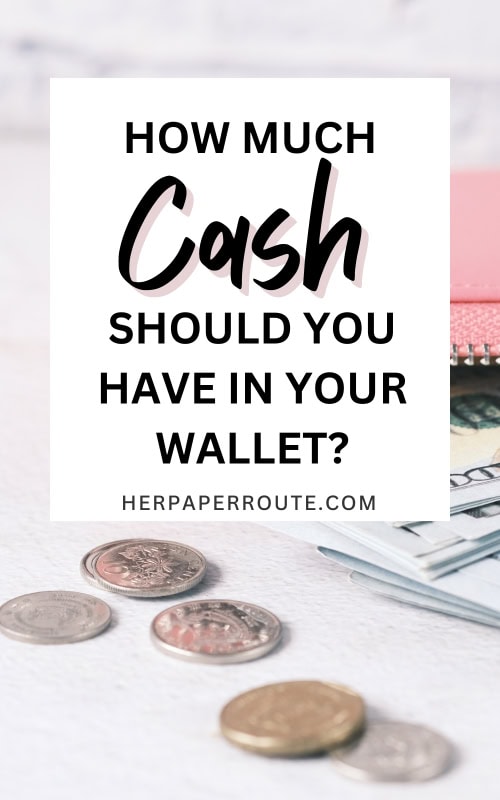
Follow along on Instagram!


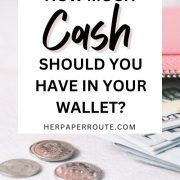



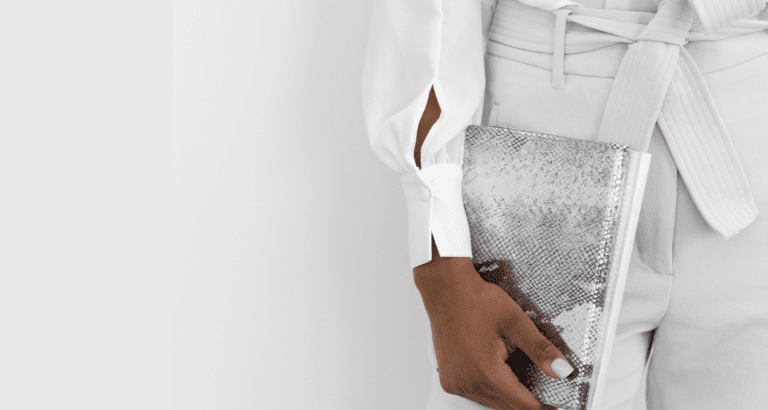
![If A Deposit Is Pending Can I Use The Money? [How Long Will It Stay That Way] 8 woman reading a book learning the anser to If A Deposit Is Pending Can I Use The Money?](https://herpaperroute.com/wp-content/uploads/2021/11/If-A-Deposit-Is-Pending-Can-I-Use-The-Money-768x410.jpeg)
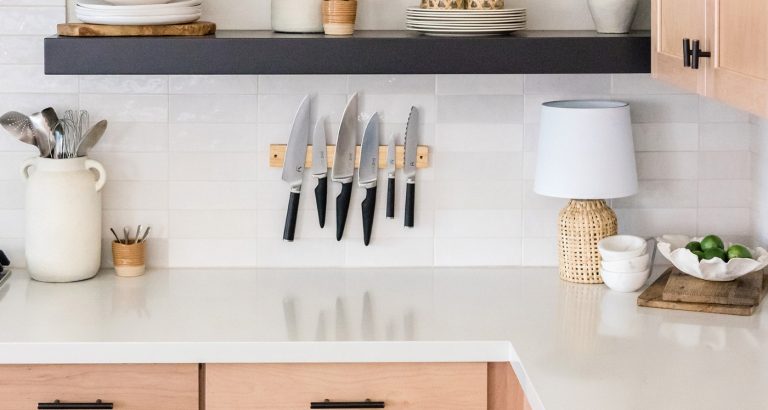

![How to Move Out at 18 [Financial Must-Do's] 11 Young adult reading How to Move Out at 18 step by step](https://herpaperroute.com/wp-content/uploads/2022/04/How-to-Move-Out-at-18-768x410.jpeg)
